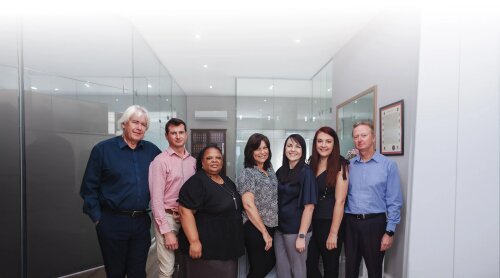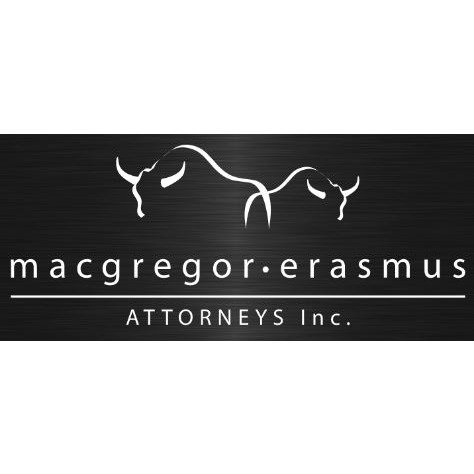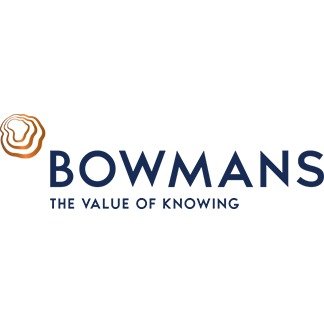Best Mining Law Lawyers in Cape Town
Share your needs with us, get contacted by law firms.
Free. Takes 2 min.
List of the best lawyers in Cape Town, South Africa
About Mining Law in Cape Town, South Africa
Mining Law in Cape Town, South Africa, encompasses the legal framework that regulates the exploration, extraction, and management of mineral resources within the Western Cape region. The law is shaped by national legislation but is also influenced by provincial guidelines and the unique geography of the Cape Town area. These laws are designed to ensure that mining activities are conducted responsibly, balancing economic benefits with environmental protection and social development. Individuals and companies engaging in any form of mining or mineral exploration in or around Cape Town must comply with a series of statutes, licensing requirements, and community engagement protocols.
Why You May Need a Lawyer
Navigating Mining Law in Cape Town can be complex due to the intersection of national regulations, environmental requirements, land rights, and community interests. You may require the expertise of a mining lawyer if you are:
- Applying for a mining or prospecting right or permit
- Negotiating mining agreements or joint ventures
- Facing compliance audits or inspections by regulatory authorities
- Responding to legal disputes involving landowners, communities, or government bodies
- Addressing environmental or health and safety concerns
- Seeking advice on royalties, taxation, or mineral rights transfer
- Challenging or appealing decisions by regulatory bodies
- Dealing with community consultation obligations or social impact assessments
Legal professionals can provide vital support in interpreting legislation, preparing documentation, advocating on your behalf, and ensuring that your activities align with both legal obligations and best practices.
Local Laws Overview
Mining Law in Cape Town is primarily governed by the Mineral and Petroleum Resources Development Act, 2002 (MPRDA), which regulates the prospecting, mining, and processing of mineral resources throughout South Africa. The National Environmental Management Act (NEMA) and related regulations also play a significant role, requiring environmental authorizations and impact assessments before mining activities commence. The Cape Town municipality may have specific by-laws affecting aspects such as land use, water management, waste disposal, and community engagement.
Key legal aspects include:
- Requirement for mining and environmental permits before commencing any activities
- Obligations for meaningful consultation with affected landowners and communities
- Compliance with environmental management plans and rehabilitation commitments
- Observance of health and safety standards for workers and surrounding areas
- Royalties payment and reporting to relevant authorities
- Possible restrictions on mining in protected or sensitive natural areas
- Procedures for transferring mining rights or interests
Non-compliance can result in severe penalties, closure of operations, or the revocation of rights, so it is crucial to understand the local legal landscape.
Frequently Asked Questions
What types of mining rights exist in South Africa?
The two main types are a prospecting right and a mining right. Prospecting rights allow for exploration activities, while mining rights permit the extraction of minerals. There are also mining permits for small-scale operations.
Who is responsible for issuing mining and prospecting rights in Cape Town?
The Department of Mineral Resources and Energy (DMRE) is the government authority in charge of granting these rights and administering compliance.
Do I need environmental authorization before starting mining activities?
Yes, all mining and prospecting operations require environmental authorization in addition to any mining permit or right. This involves an environmental impact assessment and approval under NEMA.
Can mining rights be transferred to another party?
Yes, but the transfer of mining or prospecting rights must be approved by the Minister of Mineral Resources and Energy. The application must show compliance with all legal conditions.
Are there local restrictions on where mining can take place?
Yes, certain areas, such as nature reserves, heritage sites, and protected environments, may be off-limits or subject to additional consent requirements from municipal or provincial authorities.
How are communities involved in the mining approval process?
Applicants are required to consult with affected communities and landowners. There are specific protocols for engagement, disclosure, and responding to concerns, ensuring communities have a say in projects affecting them.
What taxes and royalties must be paid?
Mining operations must pay royalties calculated on gross sales as set out in the Mineral and Petroleum Resources Royalty Act. They are also subject to normal corporate income tax and may incur additional provincial or municipal charges.
What happens if mining causes environmental damage?
The law holds right holders responsible for environmental rehabilitation of disturbed areas and for the remediation of any pollution or damage. Failure to comply can result in enforcement action, fines, and the loss of mining rights.
Can a mining right be revoked?
Yes, rights can be suspended or revoked if the holder fails to comply with legal obligations, including environmental, social, and financial requirements.
How long does it take to obtain a mining right?
The process can be lengthy, often taking several months to over a year due to the need for environmental assessments, public participation, and multiple levels of government review.
Additional Resources
If you need more information or assistance, the following resources can provide guidance related to Mining Law in Cape Town:
- Department of Mineral Resources and Energy (DMRE)
- Western Cape Department of Environmental Affairs and Development Planning
- South African Human Rights Commission
- Legal Aid South Africa
- Chamber of Mines of South Africa
- Mine Health and Safety Inspectorate
- Legal Practice Council (for finding qualified mining lawyers)
Universities with law faculties, such as the University of Cape Town, may also offer research, clinics, or advisory services relating to mining law and community rights.
Next Steps
If you need legal assistance in Mining Law in Cape Town, consider the following steps to safeguard your rights and comply with local regulations:
- Identify and clarify your specific legal issue or question
- Gather relevant documentation, such as ownership papers, correspondence, or existing permits
- Consult with a qualified local attorney or legal firm with expertise in mining and environmental law
- Contact the Department of Mineral Resources and Energy for regulatory guidance or to check application requirements
- Engage with affected communities and stakeholders early in the process to ensure transparency and compliance
- Monitor deadlines for applications, renewals, or appeals to avoid legal complications
Seeking professional legal advice from a specialist familiar with Cape Town's mining and environmental regulations is the best way to avoid pitfalls, protect your interests, and move forward confidently with your mining-related activities.
Lawzana helps you find the best lawyers and law firms in Cape Town through a curated and pre-screened list of qualified legal professionals. Our platform offers rankings and detailed profiles of attorneys and law firms, allowing you to compare based on practice areas, including Mining Law, experience, and client feedback.
Each profile includes a description of the firm's areas of practice, client reviews, team members and partners, year of establishment, spoken languages, office locations, contact information, social media presence, and any published articles or resources. Most firms on our platform speak English and are experienced in both local and international legal matters.
Get a quote from top-rated law firms in Cape Town, South Africa — quickly, securely, and without unnecessary hassle.
Disclaimer:
The information provided on this page is for general informational purposes only and does not constitute legal advice. While we strive to ensure the accuracy and relevance of the content, legal information may change over time, and interpretations of the law can vary. You should always consult with a qualified legal professional for advice specific to your situation.
We disclaim all liability for actions taken or not taken based on the content of this page. If you believe any information is incorrect or outdated, please contact us, and we will review and update it where appropriate.















